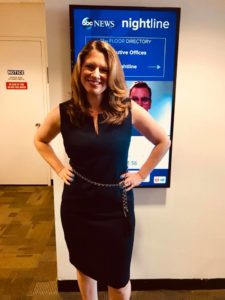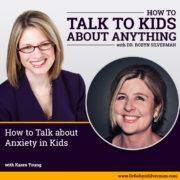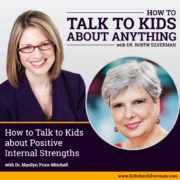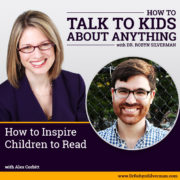Controversial Videos Create Negative Reputation for 9-Year-Old Child Lil Tay

I was interviewed for Nightline this week regarding a story about a young girl, LilTay, her controversial videos, the adults who are profiting off of her negative reputation and her very popular Instagram account.
What’s happening?
I think this is a story of a young child who is being used and fed a script to garner attention and gain money. She is the puppet and the adults in her life are pulling the strings. While others might say she is making her own choices, she is 9 years old—and while she is fully equipped to make some choices in her life- pursuing music over gymnastics or art—who she wants to be friends with- what she wants to wear, when the stakes are so high, the persona is so public and the footprint so big—we need some strong adult influence here—if it’s positive, then great things can happen but if it’s negative or not in the best interests of the child, it certainly can do more harm than good.
Is this detrimental?
I believe that a negative reputation can have a profound effect on a young, developing girl. Children are shaped by their connections and by their experiences. Her experiences are being shaped by the adults in her life and by what they are having her do and say. What happens down the line when she is 13, 15, 20 or 30—and she wants to go a different path? Her managers have created such a large footprint that it will be difficult for her to shake this contrived reputation if she would like to do so.
Her reputation proceeds her knowing who she is– the key adults in her life are helping to create a reputation that Taylor will need to fit herself into for the rest of her life.
Is a 9-year-old equipped to make these decisions?
Children don’t yet have a fully developed pre-frontal cortex that allows us to make decisions based on different factors. In other words, children’s brains are not fully developed—that’s why we have parents, teachers and coaches to help guide the way.
Who is accountable?
An online reputation that embraces such a negative persona, even if it’s orchestrated (why I think it’s orchestrated), can have a negative effect on how others see you. At his point, people are asking her where her parents are—as they are accountable now– but eventually, they will be holding her accountable.
What is our responsibility as parents?
It’s our responsibility as parents to help guide our children to become the best versions of themselves—to become kind, contributing citizens who use their gifts to inspire and help others. My concern is that this negative persona actually takes away from her gifts—it says “look at me” instead of hear my music or my message. It is really up to us as parents, leaders and educators, to help our young people though connection, conversation and example, to highlight their gifts, develop their character and contribute something positive to this world.
Why are likes and comments so important to the kids who use social media?
We know that many young people look to social media to gain attention—likes and comments become validation for their existence and that can become addictive. It feels good to be seen and heard—even if it’s not for the right things.
What kind of effect can all those negative comments have on this young girl?
A young child does not have the capacity to simply turn a blind eye to nasty, lewd or threatening comments. They can reek havoc on her developing self esteem, self worth and sense of self. The internet is not a bubble. She, with the help of the adults in her life, is creating controversy and backlash. Her brand will continue to garner negative attention which will be hard to shake as she grows.
What do YOU think of this situation? Full Nightline video here. Do you find these videos problematic or entertaining? Knowing that most people will only see the videos in which she curses, uses offensive racist terminology, flashes money around and talks smack about everyone in her path– are the adults in her life setting her up for positive stardom or a negative reputation that is problematic and harmful?






